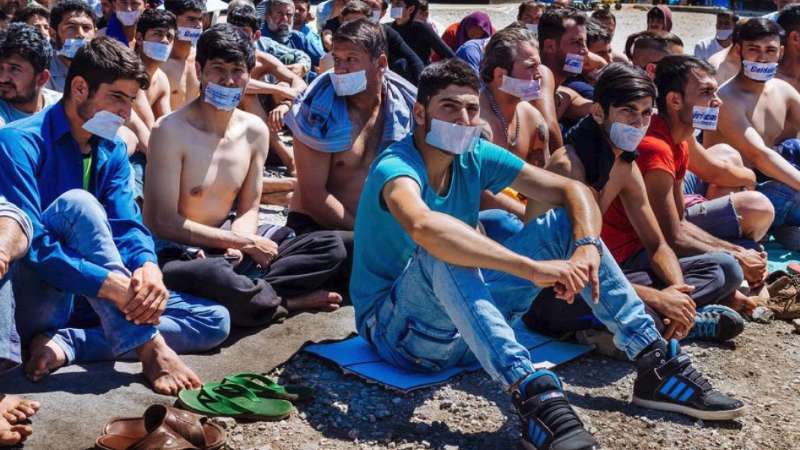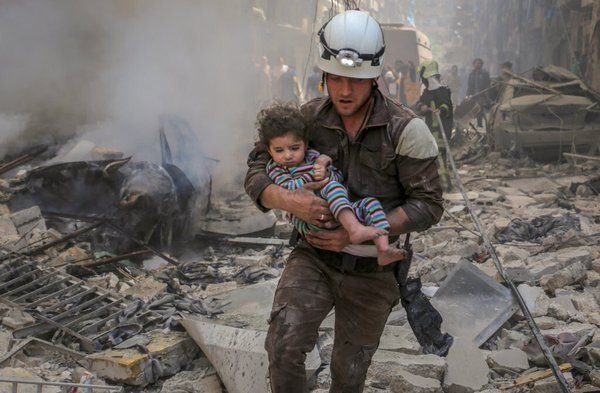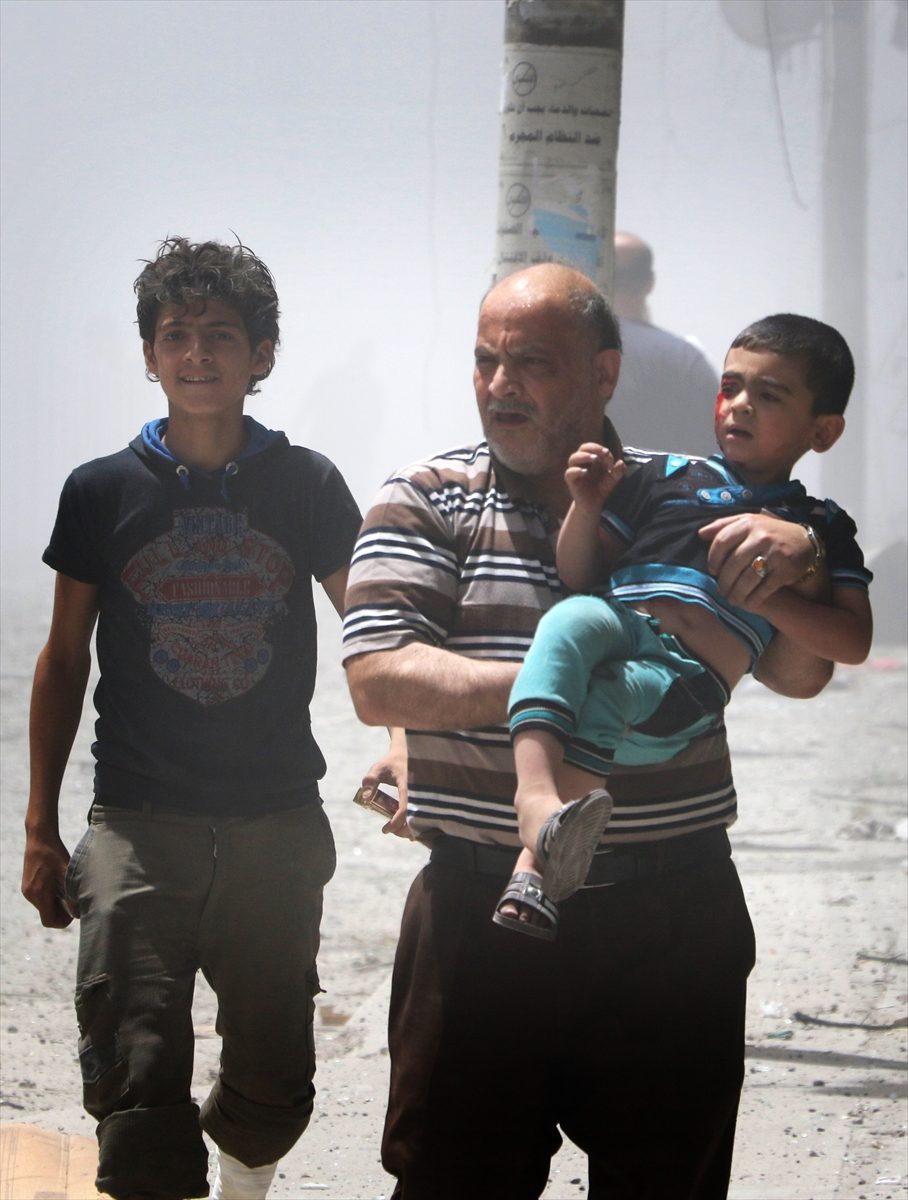
Syrian refugees who are stuck in Greece face hard times as the delivered aids are very limited and the situation gets worse every day.
Abdulsalem Yousef, who lives in a cramped room with his wife and six children in an abandoned and bankrupt hot springs resort – Aigli Hotel – sustained a head injury from shrapnel in Syria’s Homs before fleeing. From Turkey, he set sail in a crowded dinghy and arrived on a Greek island four months ago.
Lifting his hat to show the large bulbous lump on the back of his head, Abdelsalem explains that he suffers from chronic headaches and has been waiting for weeks to receive medical treatment.
“The doctor only saw me for a few minutes and told me to take Ibuprofen every few hours,” he said.
“We are living in a prison here because no one has money and the city is so far away,” he adds. “If you miss the food distribution time, then you have nothing to eat.”
’Hiding refugees’
Nasim Lomani, a 35-year-old member of the Athens-based Solidarity Initiative for Political and Economic Refugees, criticizes Greece’s policy approach as “based on hiding refugees, [so they] cannot be seen in the public”.
Explaining that most refugee camps are located outside of the city, he says: “This plan is not only anti-refugee because the conditions are horrible … It’s also fake as an idea because it will collapse very soon.”
Although the Yousef family managed to cross the Mediterranean before the deal between the EU and Turkey to halt the flow of refugees to Western Europe, they now find themselves bottlenecked in Greece along with another 57,000 refugees and migrants, unable to continue their journeys. Syrian refugees
Following that deal, countries across the Balkans sealed their borders to refugees and migrants.
Slow registration Syrian refugees
Asklepios, a camp administrator who did not provide his last name, says there were 432 registered residents – mostly Syrians – as of late June. The 87-room hotel, he explains, belongs to the local municipality.
There are no permanent doctors, but three nurses work there on a daily basis.
Those who arrived in Greece after the EU-Turkey agreement are left with the options of applying for asylum in Greece or voluntary deportation to Turkey.
Much like in camps across the country, however, residents are frustrated by the long wait to register for asylum while living in difficult humanitarian conditions. Many complain about the food, which is provided by the Greek army.
A Greek army truck pulls up, stops and reverses towards the food distribution tent. Families come out to receive their rations. Children unsuccessfully plead with soldiers for extra portions.
Taref Zeno, who was an electrician back in Aleppo, held up a small can of powdered milk. “This is supposed to last three days for my whole family. We thought Europe was more humane than this,” he said. Syrian refugees



